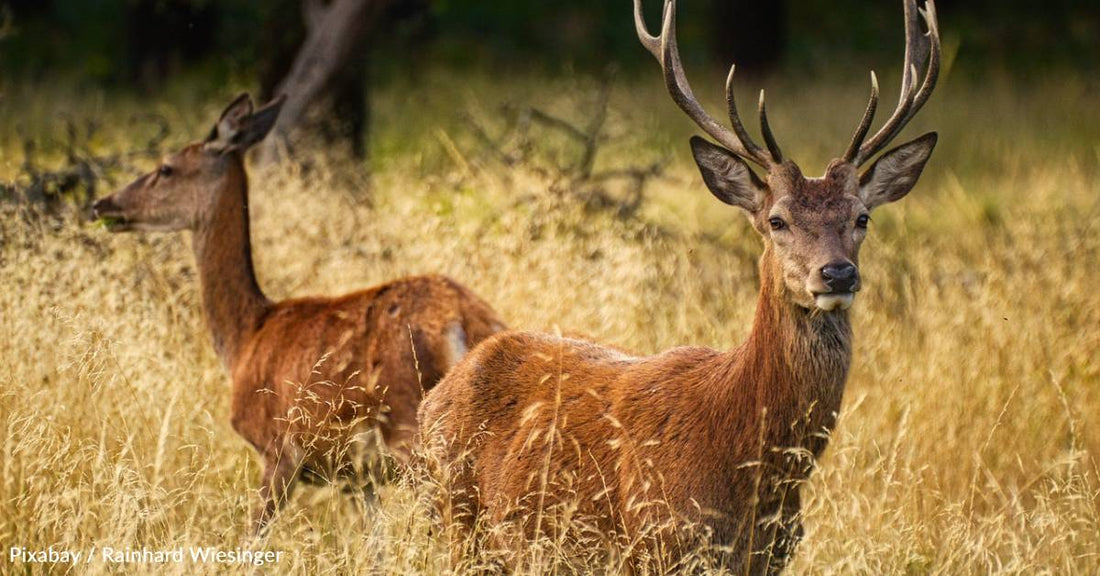'Get Off My Lawn': Some Older Animals Shun Company, Too, to Their Benefit
Michelle Milliken
As humans get older, we sometimes ease off of social interactions. Though stereotypes of older neighbors requesting you get off their lawn may not always be accurate, sometimes our patience for people can wear thin as we age. In older age, though, too much isolation can have negative consequences, including on our cognitive health. A new collection of research shows how social connectedness can be beneficial for animals, too, while one study in particular shows the opposite.
A series of studies was recently published in Philosophical Transactions of the Royal Society B. They look at aging in primates, birds, insects, and other animals, with a focus on different aspects of social aging. One of them, conducted by researchers at the University of Leeds, focused on how social aging impacts the likelihood of older female red deer contracting parasites.

The study, which involves long-running surveillance of wild deer on the Scottish island of Rum, found that strongyle nematode worm counts increased with age, while liver fluke and tissue worm counts decreased and lungworm counts remained steady.
Strongyle infection and social connectedness are linked, so female deer becoming increasingly less social as they age may protect them from infection. It’s similar to the older humans who choose to be extra careful during cold and flu season, and, more recently, during COVID-19 spikes.
Dr. Josh Firth, study co-author from the University of Leeds’ School of Biology, says, “These kinds of effects might be expected across societies, where individuals might avoid social interactions as they become more vulnerable to the costs of infection…
“Wild animals provide a good model system for considering the costs and benefits of changing social behaviour with age, and in this case may provide an example of ageing individuals reducing their social connections to avoid disease.”

The research shows that humans are hardly the only species that makes social changes with age. The other studies involved in this special collection also shine light on how social aging in animals can impact longevity, social selectiveness, and other aspects of older individual’s lives or the groups in which they live.
Professor Amanda Bretman, who was involved in research related to insects, says, “In humans, a poor social environment can have the same level of impact as smoking or obesity on healthy ageing. We also know that the same is true for other animals, but most of the work is focused on animals we think have complex societies like chimps or bees. We systematically reviewed evidence that even in insects we don’t usually think of as having complex social lives, their social environment has some big impacts on their lifespan and ageing.”
You can read all the studies here.


